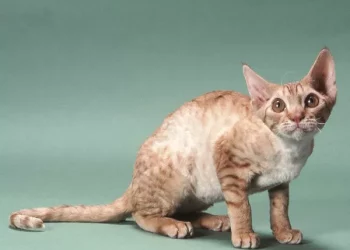Siamese cats are known for their striking blue eyes, sleek bodies, and most notably, their vocal nature. These feline companions have a unique talent for expressing themselves through various vocalizations, including their melodious meows. While Siamese cats are generally chatty throughout the day, their vocal tendencies seem to escalate during the nighttime hours. This article delves into the intriguing question: Why do Siamese cats meow at night?
Instinctual Behavior:
Siamese cats, like their feline counterparts, are crepuscular creatures, meaning they are naturally more active during twilight hours. This trait harks back to their ancestors, who were adept hunters during dawn and dusk. Consequently, Siamese cats may exhibit increased energy levels and a heightened desire to explore their surroundings when the sun goes down. Their meows could serve as a way of seeking attention, expressing their readiness to play, or simply engaging with their human companions during these active periods.
Loneliness and Separation Anxiety:
Cats, by nature, are social animals and form strong bonds with their human families. Siamese cats, in particular, are known for their devotion to their owners. When left alone at night, they might experience feelings of loneliness and separation anxiety, leading to excessive meowing. Siamese cats thrive on companionship and interaction, and their nighttime meowing could be their way of seeking reassurance and attention from their loved ones.
Communication:
Siamese cats have an extensive vocal repertoire that they utilize to communicate with their human counterparts. These vocalizations range from soft purrs and trills to loud, persistent meows. Nighttime meowing can serve as a means of communication, conveying a variety of messages. It could indicate hunger, a request for access to certain areas of the house, or a call for attention and interaction. Understanding the context behind the meows and responding accordingly can help foster a better bond between humans and their Siamese companions.
Environmental Factors:
The nocturnal meowing of Siamese cats may also be triggered by external stimuli in their environment. Cats have incredibly acute hearing, and even the slightest noise, such as a passing car or a rustling sound, can capture their attention and prompt them to vocalize. Additionally, if there are other animals in the vicinity, such as neighborhood cats or nocturnal wildlife, Siamese cats may feel compelled to mark their territory or defend their domain through vocalizations.
Hormonal Influences:
Siamese cats, like all felines, can experience changes in behavior due to hormonal fluctuations. Female Siamese cats who have not been spayed may exhibit increased vocalization during their heat cycles, especially at night. The meowing serves as a signal to attract potential mates. Neutered males may also meow more frequently if they detect the presence of a female cat in heat nearby.
Health Concerns:
Although Siamese cats are generally healthy and robust, excessive meowing at night could sometimes be indicative of underlying health issues. It is essential to rule out any potential medical conditions that may be causing discomfort or pain, such as urinary tract infections, hyperthyroidism, or gastrointestinal problems. If the nighttime meowing persists or is accompanied by other unusual symptoms, consulting a veterinarian is recommended.
Conclusion:
The nocturnal meowing of Siamese cats is a multifaceted behavior with various underlying causes. Their innate instinct, social nature, and a desire for attention and communication all contribute to their vocalizations at night. Understanding and addressing the needs of these unique feline companions can help foster a harmonious relationship and ensure their well-being. By providing companionship, creating a stimulating environment, and seeking professional advice if necessary, owners can help their Siamese cats find comfort and reduce nighttime meowing, allowing both humans and felines to enjoy a restful night’s sleep.
Recommended reading:

























